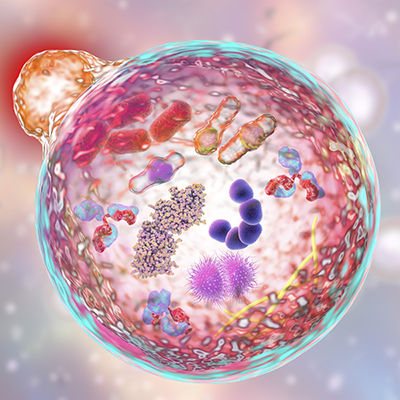September 13, 2022 -- European researchers have identified the molecular pathway that allows cancer cells to start breaking down surrounding proteins as a food source when facing starvation. The discovery has implications for cancer research and treatment.
Scientists from the German Cancer Research Center (DKFZ) in Heidelberg and the Research Institute of Molecular Pathology (IMP) in Vienna created tightly controlled nutrient conditions to mimic amino acid starvation as it occurs in many tumors (Science, September 8, 2022). They used CRISPR-Cas9 to disrupt the expression of almost every gene in the genome, allowing them to determine several pathways involved in the nutrient switch.
One such gene was only required for cell survival when cancer cells were feeding on extracellular proteins. They renamed the uncharacterized gene LYSET (lysosomal enzyme trafficking factor), which turned out to be crucial for the function of lysosomes. The scientists also found that the gene acts as a core component of the mannose-6-phosphate pathway, which is required for filling lysosomes with digestive enzymes. Without LYSET, the cancer cells didn't have enzymes in their lysosomes and thus couldn't digest proteins.
Using mouse models, the researchers confirmed their findings: A lack of LYSET strongly impaired tumor development in several types of cancer but it was well-tolerated under normal nutrient conditions.
Copyright © 2022 scienceboard.net








